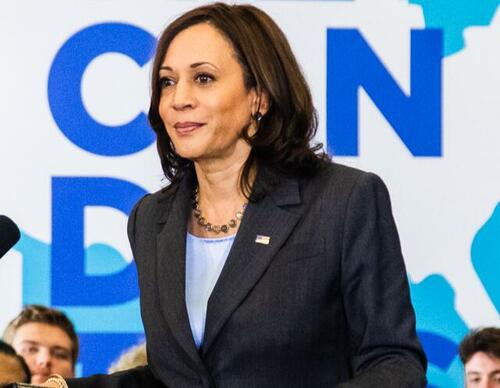Authored by Tristan Abbey via RealClearEnergy,
It should go without saying that natural gas in normal conditions doesn’t liquify itself. It’s a shame the Biden-Harris administration acts as if it does.
When the gas comes out of the ground it must be captured immediately, transported by pipeline to a processing plant, processed, fed into another pipeline, and transported to a liquefaction facility, where it is super-cooled to 260 degrees below zero (Fahrenheit) and becomes a liquid. But that’s only half the deal. After it is liquified, the gas is loaded onto a specialized ship called an LNG carrier, transported across the ocean to a regasification facility, regasified, fed into another pipeline, and delivered— to residential customers where it will warm their homes or cook their food; to power plants to generate electricity; and to all manner of factories as a raw component in the manufacture of fertilizers, steel, plastics, paint, and other commodities.
Breaking into the global LNG market has been a generational endeavor—and an outstanding success—for the American economy. The technical sophistication required to master the liquefaction, transportation, and regasification of this vital hydrocarbon is not trivial. Each LNG cargo represents the fruits of years of permitting and construction, the investment of billions of dollars, and negotiations of contracts (also known as “off-take agreements”) that will be in force for decades. Long-term operations, long-term relationships, long-term impact.
The arrival of carriers laden with American LNG to Europe in the months after Russia’s invasion of Ukraine in 2022 was celebrated by the Biden-Harris administration. These ships, metaphorically speaking, set sail a decade earlier, as LNG export terminals navigated the dilapidated federal regulatory process. These liquefaction facilities, in turn, rely on natural gas supplied from fields that themselves had to be explored and developed over many years.
But now the White House incumbents are playing with fire. Their decision in January 2024 to pause most export approvals until the completion of duplicative economic and environmental studies has already damaged the trustworthiness of American natural gas supplies. Japan, one of our closest allies and most important customers for LNG, was the first to sound the alarm. That damage will be compounded if these studies provide an excuse for the federal government to extract concessions from the U.S. natural gas industry before approvals resume.
Regulatory uncertainty means higher costs, longer and delayed timelines, and potentially disrupted supply chains. “Turning off” LNG exports would cause a cascading series of dislocations throughout the economy, not only in the export sector. It has taken the better part of a generation already to achieve the nation’s dominant position in natural gas. That is at risk with the stroke of a pen. The next president can lift the pause on approvals, but that will need to be done carefully to mitigate the risk of litigation, and only Congress can provide a permanent solution.
Tristan Abbey is a senior fellow at the National Center for Energy Analytics and the author of the new report, “A Generational Opportunity: Achieving U.S. Dominance in Global LNG.”
